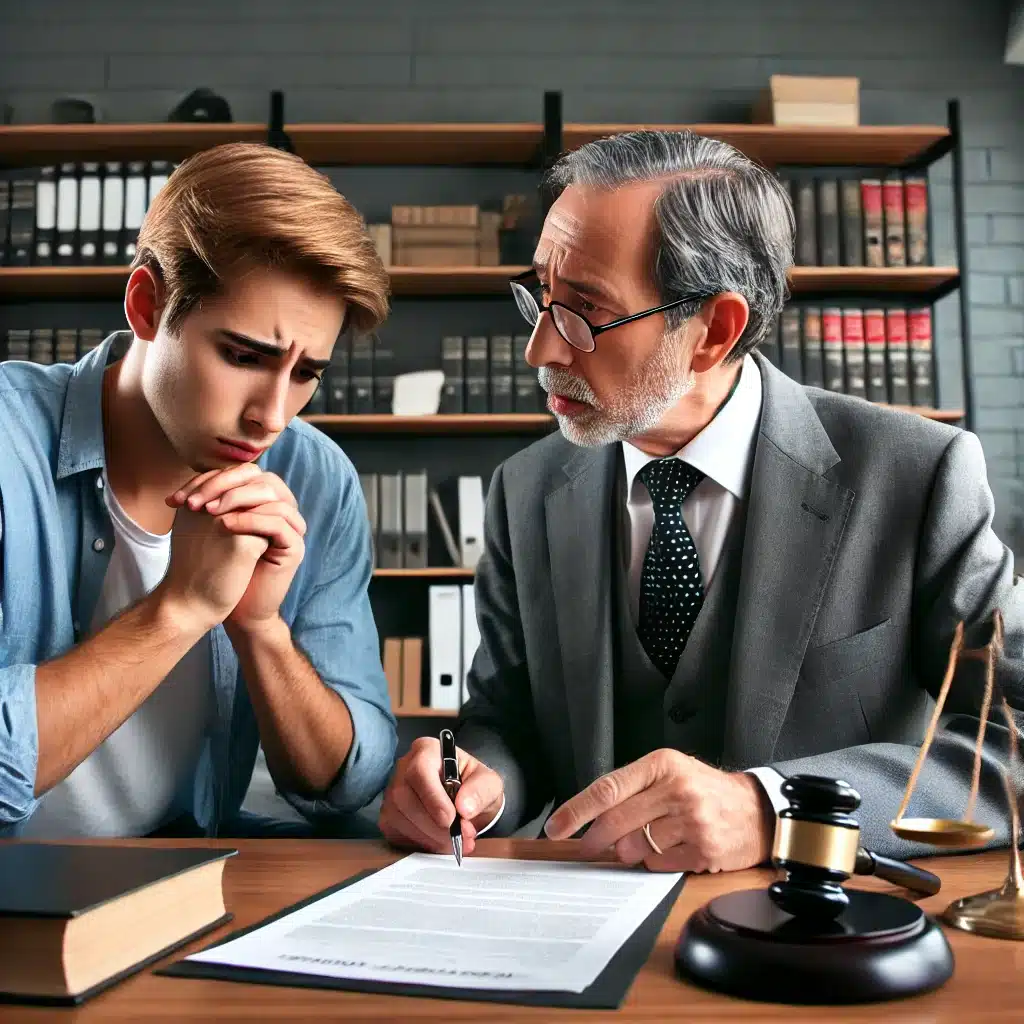Lawyer's Function in Declaring a Habeas Corpus Petition Explained
Lawyer's Function in Declaring a Habeas Corpus Petition Explained
Blog Article
Understanding the Role of a Post-Conviction Attorney in Seeking Justice After a Criminal Conviction
In the complex landscape of post-conviction legal process, the duty of a post-conviction attorney is essential in browsing the path to justice after a criminal sentence. Past the confines of a test, these lawful specialists take part in a complex approach focused on discovering new proof, difficult lawful mistakes, and promoting for their customers' legal rights. The complexities of post-conviction work call for a mix of legal acumen, investigative abilities, and calculated believing to decipher the intricacies of a situation and seek methods that might have been forgotten or underexplored. As the search of justice prolongs past the boundaries of preliminary proceedings, the role of a post-conviction lawyer becomes a sign of wish for those seeking to correct injustices and recover their legal rights within the lawful system.
Post-Conviction Legal representative's Investigatory Work
Post-conviction legal representatives take part in careful investigative work to discover brand-new proof, step-by-step errors, or misbehavior that might possibly lead to overturning a sentence. This investigative stage is vital in the post-conviction process as it intends to recognize any ignored details or lawful mistakes that might have affected the end result of the preliminary trial. Post-conviction attorneys look into instance data, witness testimonies, and legal documents with a fine-tooth comb, looking for any type of inconsistencies or abnormalities that can be grounds for allure.
Through detailed investigation, post-conviction attorneys aim to shed light on potential injustices that may have taken place during the original trial. They may perform interviews, talk to professionals, and review forensic evidence to develop a compelling instance for their customers. By inspecting every facet of the legal process, post-conviction attorneys function tirelessly to discover any kind of aspects that may have affected the decision. Inevitably, their investigative job plays an essential duty in the pursuit of justice and the possible turnaround of wrongful convictions.
Crafting Appeals and Petitions
In the search of justice after a conviction, competent lawyers meticulously craft appeals and petitions to present engaging arguments for the reconsideration of lawful choices. Crafting charms and petitions requires a deep understanding of the legal system, interest to information, and strategic reasoning. Post-conviction lawyers analyze trial documents, identify potential errors or infractions of legal rights, and create lawful debates to test the sentence or sentence.
When crafting an allure, attorneys concentrate on highlighting legal mistakes that might have impacted the outcome of the instance. They investigate case law, laws, and lawful criteria to support their debates. Applications, on the other hand, may involve providing brand-new evidence that was not readily available throughout the trial or showing changes in the law that call for a review of the sentence.
Moreover, post-conviction legal representatives should abide by rigorous procedural policies and deadlines when filing charms and requests. They have to present their debates clearly and persuasively to persuade the court to provide alleviation to their customers. With careful crafting of appeals and requests, post-conviction lawyers aim to safeguard justice for people who have actually been wrongfully convicted or unjustly punished.

Going After Post-Conviction Relief
Seeking alleviation after a conviction calls for a tactical and diligent technique by skilled lawyers. Post-conviction relief incorporates an array of legal systems developed to challenge the legitimacy of a sentence or sentence (arkansas federal lawyer). These avenues include filing movements for a new test, going after charms, seeking view website writs of habeas corpus, and presenting freshly discovered evidence. Post-conviction legal representatives play a crucial duty in browsing these complex procedures, guaranteeing that all lawful choices are checked out to remedy oppressions that may have taken place during the test or sentencing stage.
One typical type of post-conviction relief is submitting an application for post-conviction relief, normally based on claims of inefficient aid of advice, prosecutorial misbehavior, recently uncovered evidence, or constitutional infractions. Experienced post-conviction attorneys possess the skills and knowledge essential to identify sensible legal cases, carry out investigations, and existing engaging disagreements to safeguard relief for their clients.
Using Forensic Proof
When testing a conviction or sentence, the critical application of forensic evidence can be an effective tool in post-conviction legal proceedings. Forensic proof incorporates a large range of clinical techniques used to explore crimes and establish facts in court. Post-conviction legal representatives can leverage forensic proof to challenge the legitimacy of sentences by presenting new clinical findings that were not readily available during the original test.

Engaging in Sentence Adjustments
Post-conviction attorneys might check out the opportunity of sentence alterations as a legal method to deal with disproportionate or unfair sentences bied far in criminal instances. Sentence adjustments entail seeking modifications to the terms of an accused's sentence after a conviction has actually occurred. These modifications can include minimizing the length of a sentence, altering the type of punishment enforced, or discovering alternative sentencing options.
Post-conviction lawyers can pursue sentence adjustments with different legal mechanisms, such as filing motions for sentence reduction, appealing for compassionate release, or bargaining appeal deals for decreased sentences. They need to meticulously review the situations of the instance, assess the legal grounds for seeking an alteration, and existing compelling debates to the court supporting the demand for a modified sentence.
Participating in sentence adjustments calls for a comprehensive understanding of criminal legislation, punishing guidelines, and the details procedures associated with seeking post-conviction alleviation. Post-conviction legal representatives play a crucial role in supporting for reasonable and just end results by difficult sentences that are unduly extreme or do not align with the concepts of justice.
Final Thought
Finally, the role of a post-conviction lawyer is vital in looking for justice after a criminal conviction. Via investigative job, crafting charms and petitions, seeking post-conviction relief, utilizing forensic evidence, and taking part in sentence modifications, these lawyers play an important duty in supporting for their clients and ensuring that their legal rights are promoted within the criminal justice system. Their dedication and competence are vital in browsing the complexities of post-conviction process and achieving a reasonable end result for people dealing with criminal convictions.
Report this page